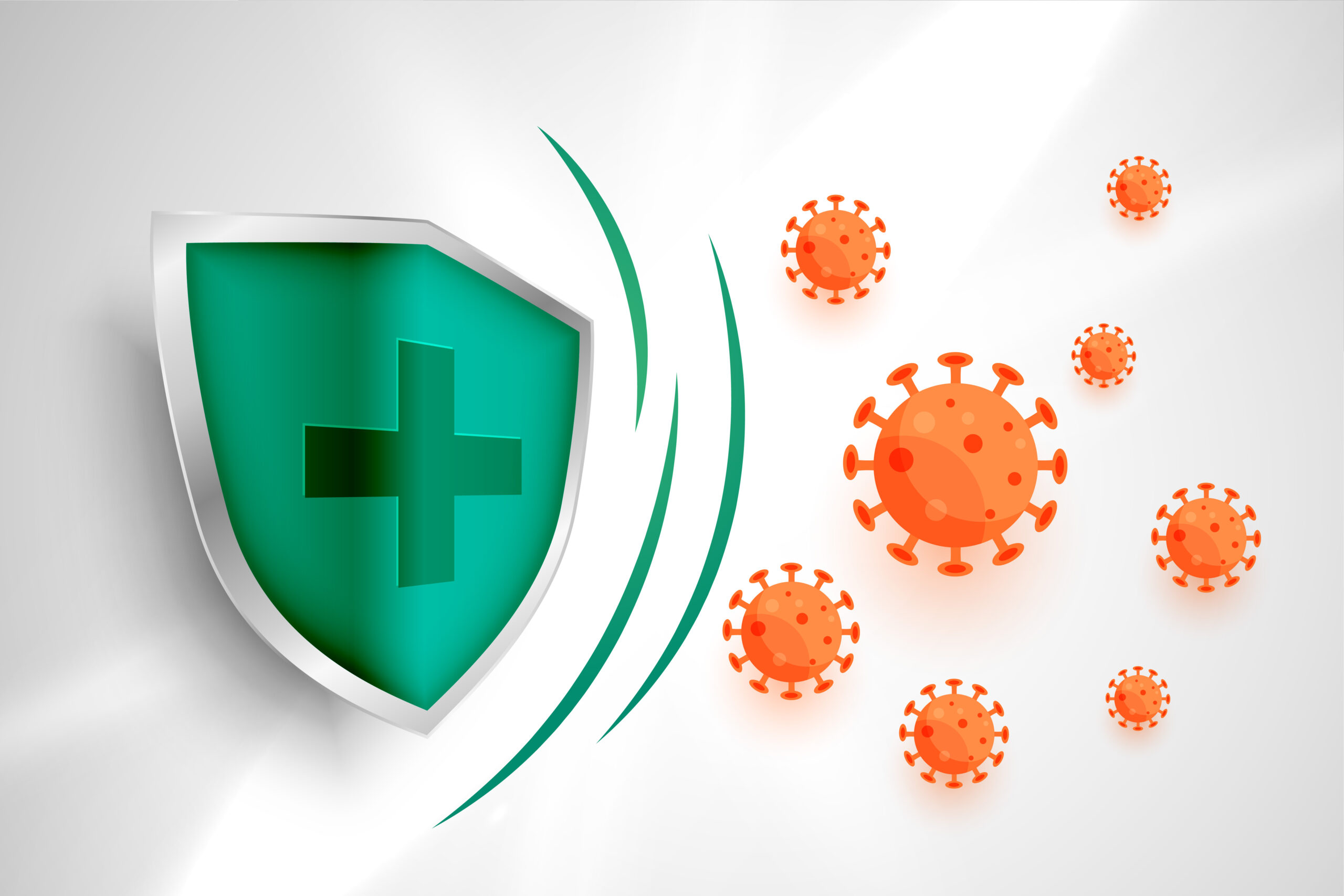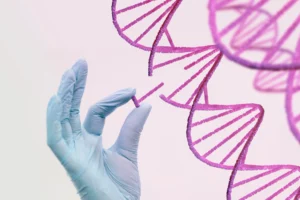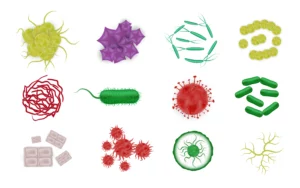1) What is the primary function of the immune system?
a) Digestion of food
b) Regulation of body temperature
c) Protection against infections and diseases
d) Production of hormones
Answer: c) Protection against infections and diseases
Explanation: The immune system’s main role is to defend the body against harmful pathogens, such as bacteria, viruses, fungi, and parasites, that can cause infections and diseases.
2. Which of the following is NOT a component of the immune system?
a) Red blood cells
b) White blood cells
c) Antibodies
d) Platelets
Answer: d) Platelets
Explanation: Platelets are involved in blood clotting and are not considered a part of the immune system. The immune system includes white blood cells (leukocytes), antibodies, lymphatic vessels, lymph nodes, and the spleen.
3. What are antigens?
a) Foreign substances that trigger an immune response
b) Proteins that transport oxygen in the blood
c) Enzymes that aid in digestion
d) Nucleic acids found in the cell nucleus
Answer: a) Foreign substances that trigger an immune response
Explanation: Antigens are molecules, often found on the surface of pathogens, that are recognized by the immune system as foreign. They stimulate the production of antibodies and activate immune responses.
4. Which type of immune response involves B cells producing antibodies?
a) Cell-mediated immunity
b) Humoral immunity
c) Innate immunity
d) Passive immunity
Answer: b) Humoral immunity
Explanation: Humoral immunity involves the production of antibodies by B cells in response to antigens. These antibodies can neutralize pathogens or tag them for destruction by other immune cells.
5. T cells are a type of white blood cell that play a key role in:
a) Producing antibodies
b) Phagocytosis
c) Cell-mediated immunity
d) Blood clotting
Answer: c) Cell-mediated immunity
Explanation: T cells are central to cell-mediated immunity, where they recognize and directly target infected or abnormal cells for destruction. They do not produce antibodies directly.
6. What is the role of cytotoxic T cells?
a) Producing antibodies
b) Recognizing antigens presented by infected cells and inducing their death
c) Promoting inflammation
d) Stimulating B cells to divide
Answer: b) Recognizing antigens presented by infected cells and inducing their death
Explanation: Cytotoxic T cells (also known as CD8+ T cells) identify antigens presented by infected cells and initiate their destruction through the release of cytotoxic substances, inducing apoptosis in the infected cells.
7. Which immune response provides rapid but short-lived protection, typically through the transfer of antibodies?
a) Active immunity
b) Innate immunity
c) Passive immunity
d) Humoral immunity
Answer: c) Passive immunity
Explanation: Passive immunity occurs when pre-formed antibodies are transferred from one individual (or source) to another. It provides immediate protection but is temporary, as the recipient’s immune system is not actively involved.
8. Memory cells are an essential part of the immune system because they:
a) Produce antibodies continuously
b) Trigger allergic reactions
c) Provide long-lasting protection against previously encountered pathogens
d) Regulate body temperature
Answer: c) Provide long-lasting protection against previously encountered pathogens
Explanation: Memory cells “remember” previous encounters with specific pathogens, allowing the immune system to respond more rapidly and effectively upon re-exposure, providing long-lasting protection.
9. What happens during an allergic reaction?
a) The immune system attacks the body’s own cells
b) Memory cells are activated
c) Immune cells release histamines, causing inflammation and other symptoms
d) Antibodies are produced against harmless substances
Answer: c) Immune cells release histamines, causing inflammation and other symptoms
Explanation: Allergic reactions occur when the immune system reacts excessively to harmless substances (allergens). Immune cells release histamines and other chemicals, leading to inflammation, itching, and other symptoms.
10. Which of the following is an example of an autoimmune disease?
a) Influenza
b) Tuberculosis
c) Lupus
d) Malaria
Answer: c) Lupus
Explanation: Lupus is an autoimmune disease where the immune system attacks and damages healthy tissues, leading to a range of symptoms and potential complications.
11. What is the function of vaccines in relation to the immune system?
a) They provide immediate protection against any pathogen
b) They stimulate the production of memory cells to confer immunity without causing disease
c) They directly attack and destroy pathogens in the body
d) They prevent the production of antibodies
Answer: b) They stimulate the production of memory cells to confer immunity without causing disease
Explanation: Vaccines contain harmless antigens that stimulate the immune system to produce memory cells. These memory cells “remember” the pathogen, providing immunity without causing the actual disease.
12. What is the main role of the thymus in the immune system?
a) Production of antibodies
b) Filtering blood and removing toxins
c) Maturation of T cells
d) Destruction of pathogens
Answer: c) Maturation of T cells
Explanation: The thymus is responsible for the maturation and development of T cells, a crucial component of cell-mediated immunity. It helps educate T cells to differentiate between self and non-self antigens.
Image by starline on Freepik





Leave a Reply
You must be logged in to post a comment.